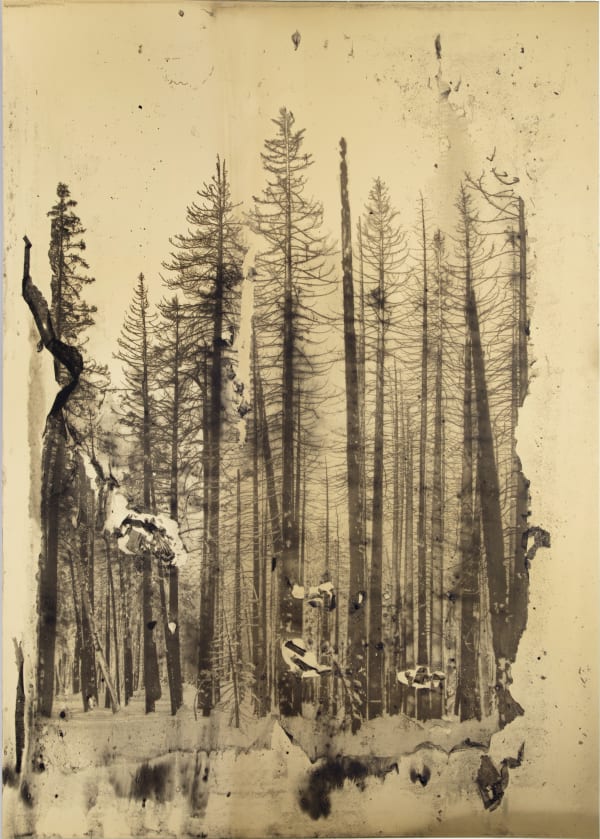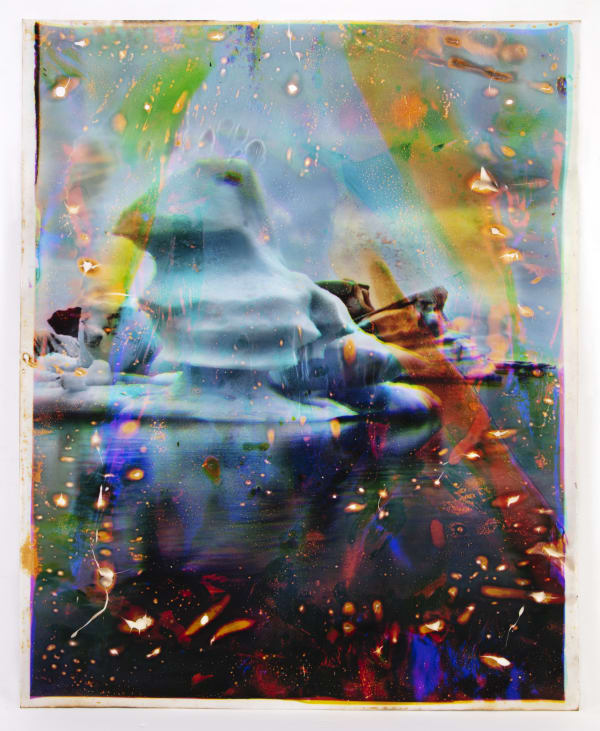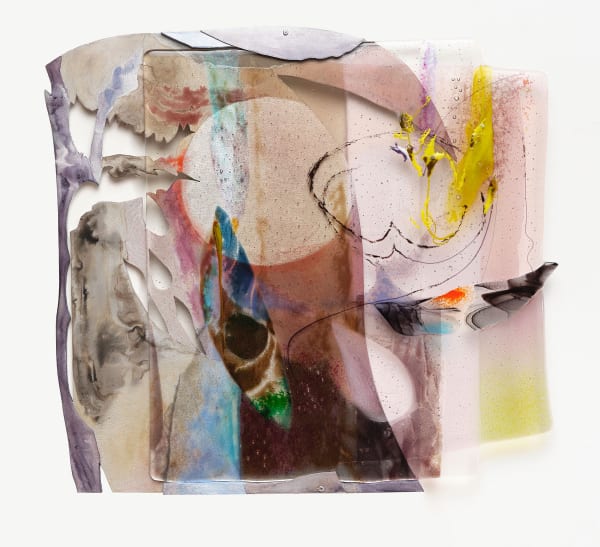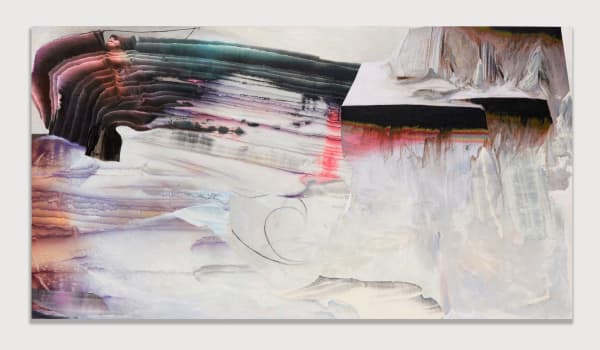-
-
Material Matters
July 19 - August 31, 2024
Material Matters brings together eight artists whose highly inventive use of materials is central to their practices. The exhibition includes works by Deborah Butterfield and Matthew Brandt, who take the natural world as a site of inspiration and transmutation. Each channels the tactile, tangible beauty of nature, while incorporating evidence of its imperilment. Ai Weiwei and Zhan Wang substitute one material for another, creating new chains of associations and meanings. In both cases, the resulting sculptures investigate the relationship between materials, contemporary production, and cultural values. Linda Connor and David Simpson create meditative spaces with their chosen materials, while Stuart Robertson and Leslie Shows combine and collage theirs in unexpected ways to expand the possibilities of traditional portraiture and landscape painting. Throughout the exhibition, each artist’s chosen materials reflect diverse concerns and creative approaches, and reconsider the boundaries of form and genre.
-

-
Ai Weiwei (b. 1957, lives and works in Portugal) is known for his sculptures that utilize materials imbued with tradition, retooling or recreating relics from China’s past. Handcuffs (2012) is an articulated sculpture precisely carved from a wood traditionally reserved for classical Chinese furniture. The work is animated by the artist’s personal story, created shortly after his detention by Chinese authorities, and suggests notions of freedom, censorship, and human dignity.
-
-
Matthew Brandt’s (b. 1982, lives and works in Los Angeles, CA) innovative photographic methods create a direct dialogue between subject matter and material, often incorporating physical elements gathered at the sites he photographs. In his ongoing Carbon series, images of fire-scarred forests are created using ash and cinder collected from these very landscapes. His prints of Iceland’s Vatnajökull glacier are subjected to fire and heat, resulting in blistered, technicolor images of a landscape imperiled by rising temperatures.
-

-
Bronze masquerades as ocean detritus masquerading as a horse in Deborah Butterfield’s (b. 1949, lives and works in Holualoa, HI and Bozeman, MT) masterful Two Seas (2023-24). The work is a powerful environmental allegory, comprising a combination of the natural and manmade: driftwood, the remnants of a plastic buoy and floatation devices, a trail of netting, collected from the Iceland Sea and the Pacific and seamlessly transformed into a bronze equine form.
-

-
Linda Connor’s (b. 1944, lives and works in the San Francisco Bay Area, CA) photographic practice demonstrates a longstanding interest between systems of belief and the natural world. Over the years, Connor has employed alternative strategies for display and interpretation, printing her iconic images as accordion books, hinged altarpieces, and silk panels. Evoking tapestries and religious hangings such as liturgical banners, her image of a rock-cut doorway in Petra’s Royal Tombs, originally photographed with a large-format camera, is rendered in a sheer silk that simultaneously reveals and conceals what lies beyond its threshold.
-
-
Stuart Robertson (b. 1992, lives and works in New York, NY) creates closely cropped portraits of friends and family using non-traditional materials including aluminum, textiles, glitter, bubble wrap, and sawdust. Aluminum — the largest export of his native Jamaica, associated at once with capital, consumption, extraction, and exploitation — embodies luster and armor in his metallic-skinned subjects. Robertson’s lustrous figures offer unusual interactions with images of Blackness, and reject distortion, misrepresentation, and erasure.
-
Leslie Shows’ (b. 1977, lives and works in Los Angeles, CA) collaged paintings are rich with myriad details and ambiguous references. In the recent works exhibited in Material Matters, she draws from a vocabulary of materials that includes paint, ink, fused glass, canvas, aluminum, sand, and rust, experimenting with their physical, representational, and symbolic qualities. In these complex, textured compositions, layered material and imagery alludes to natural forms and forces, flows of thought, and the process of painting itself.
-
David Simpson’s (b. 1928, lives and works in Berkeley, CA) signature Interference paintings shift and shimmer, as they respond to changing light and the presence and position of viewers. The works are created from and named for interference pigments, an acrylic paint containing mica-coated particles that interact with and refract light. Layering multiple coats and hues, Simpson creates optical illusions of depth and shadow in what may first appear to be monochrome canvases.
-

-
Zhan Wang (b. 1962, lives and works in Beijing, China) reinterprets scholar’s rocks — the craggy, creviced stones prized and collected by Chinese literati — in gleaming stainless steel, a ubiquitous material of the modern age. His Artificial Rock #148 (2007) reflects in a mirror-like fashion much of the world’s rapid urbanization and its dislocation from nature.
-















